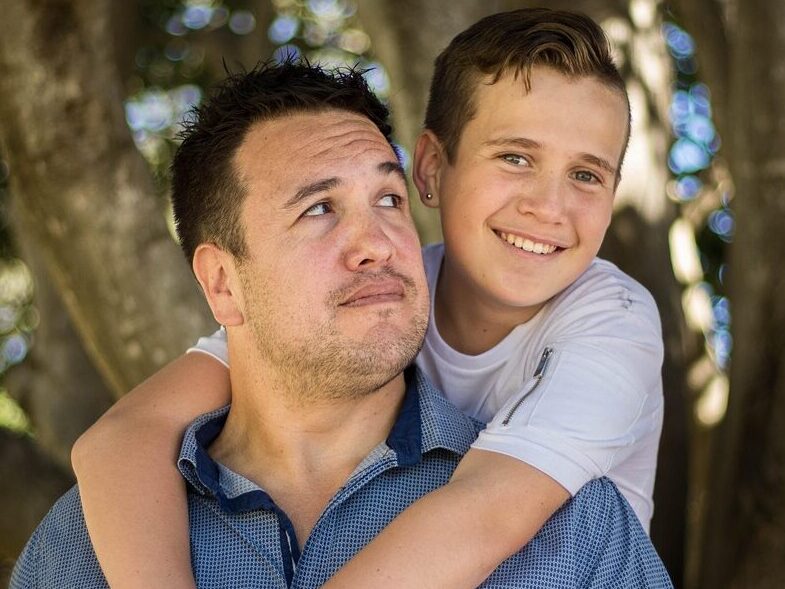
Being a single dad comes with its own unique set of responsibilities, challenges, and quiet triumphs. They are showing up every day for their kids in ways that matter. If you want to support them, it starts with knowing what not to say. Here are 30 things that single dads often hear—and why you should think twice before saying them.
“Are you babysitting today?”

This is one of the most frustrating comments a single dad can hear. Spending time with his own children is not babysitting. It is parenting. The assumption that a father caring for his kids is somehow temporary or unusual reinforces the outdated belief that nurturing is exclusively a mother’s role. When you say this, it minimizes the commitment and presence he brings to his child’s life every single day.
“So where’s the mom?”
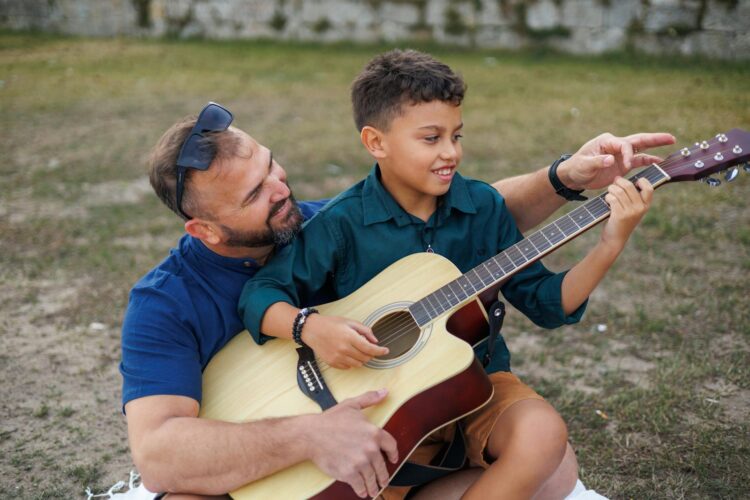
This question often comes off as judgmental, invasive, or tinged with gossip. It assumes you are entitled to private details about the family’s history. Maybe she passed away, maybe she left, or maybe they co-parent peacefully. Whatever the situation, it is not your place to ask unless the dad chooses to share. Focus on the present relationship, not the backstory.
“Wow, you’re actually good at this.”

This might sound like a compliment, but it is laced with surprise that a man could be a capable parent. The word “actually” implies that you expected failure or incompetence. No one would say this to a mother for doing the basics of parenting. Fathers can nurture, cook, organize, and soothe with just as much skill. Praise should never come with disbelief.
“It must be hard doing the mom stuff too.”

This assumes there is a division between “mom stuff” and “dad stuff.” There is not. Parenting is parenting. Feeding a baby, helping with homework, comforting after a bad dream—these are not gendered tasks. This kind of comment reinforces the harmful stereotype that men are only equipped for discipline or play. It ignores the emotional labor that many single dads fully and capably take on.
“I don’t know how you do it.”

This sounds supportive on the surface, but it often frames single fatherhood as an extraordinary burden rather than a lived reality. When people say this, they might mean well, but it can feel isolating. Single dads do what needs to be done because they love their kids. They adapt, they grow, and they handle it—because that is what parents do.
“Do you even know how to braid hair or change diapers?”
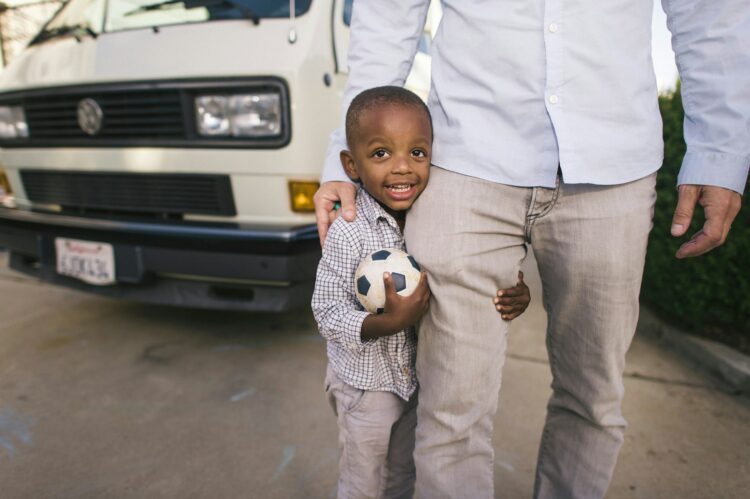
This question might get laughs, but it assumes incompetence and plays into the “bumbling dad” stereotype. Many single dads learn quickly how to care for their child’s every need, from diapers to dance recitals. Some already knew. Either way, these tasks are not exclusive to mothers. They are just part of the job, and plenty of dads handle them with ease and confidence.
“I bet the moms at school love you.”

This comment reduces his role as a father to a romantic or sexual opportunity. It implies that his value in parenting spaces comes from his availability, not his presence as a parent. It objectifies and distracts from what really matters—his relationship with his child. He is not trying to get a date at school pickup. He is just trying to raise his kid.
“Your kid must really miss having a mom around.”

Even if this is said with sympathy, it hits like a punch. It suggests that no matter what he does, his efforts will never be enough. It reinforces the idea that a child without a mother is somehow at a disadvantage no matter how loved or supported they are. Instead of focusing on absence, recognize the strength and love that are already present.
“Are you going to find someone to help you raise them?”

This question implies that he cannot parent alone, or that he should be looking for someone to fill a supposed void. It turns parenting into a two-person requirement, when in reality, many single dads are managing beautifully on their own. If he finds a partner one day, great. But that is not a requirement for being a good father.
“Kids need a woman’s touch.”

This statement assumes that emotional care, empathy, and gentleness only come from women. That is not true. Many single fathers are deeply nurturing, incredibly intuitive, and emotionally present. Love and stability do not come from gender. They come from consistency, presence, and heart. Suggesting otherwise dismisses the countless ways a father shows up for his child every day.
“Your kid must be so lucky to have you.”
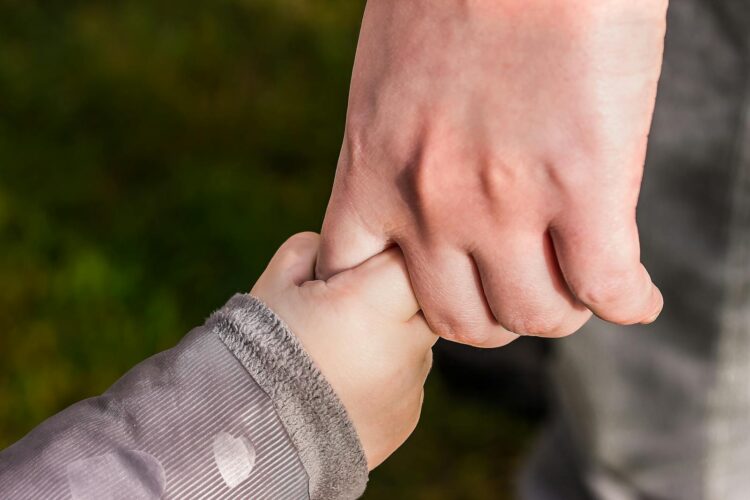
While this might sound like a compliment, it can come across as patronizing. It suggests that the child is lucky simply because the father is doing what any committed parent would do. It reinforces the assumption that dads are not naturally nurturing or present. A more meaningful way to show appreciation is to recognize his consistency, strength, and care without the element of surprise. The child is not lucky because he stayed. The child is secure because he shows up.
“Do you work full-time too?”

This question often implies disbelief that a single father could handle both career and parenting duties. In truth, many single dads juggle full-time jobs, child care, and household responsibilities with little help. They do not have the luxury of choosing between work and parenting. They do both, every single day. Instead of asking how they manage, try offering real support or simply acknowledging how much effort that balance takes.
“You must not have much of a social life.”

This kind of remark makes assumptions about what matters to him. He may miss parts of his old social life, or he may not. The truth is, like many devoted parents, he has chosen to prioritize his child’s wellbeing over going out. Suggesting he is missing something assumes his life is lacking, when in reality, it may be more meaningful and focused than ever before. Parenthood often reshapes priorities—and that is not a loss. It is growth.
“It must be tough without a woman in the house.”
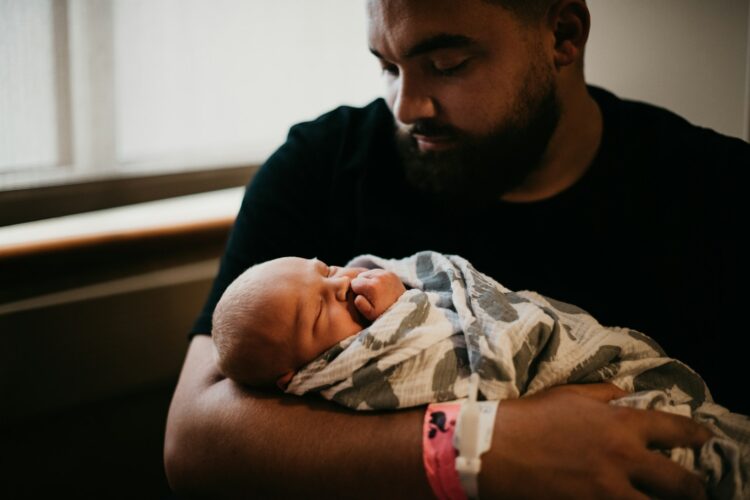
This statement plays into outdated gender norms about emotional labor, household organization, and nurturing. It suggests that a home run by a man is inherently incomplete. The truth is, single fathers learn to do everything from cooking and cleaning to hair care and emotional support. Some already knew how. His household may look different, but it is not broken. Comments like this say more about your assumptions than about his capabilities.
“Are you raising your kid alone by choice?”
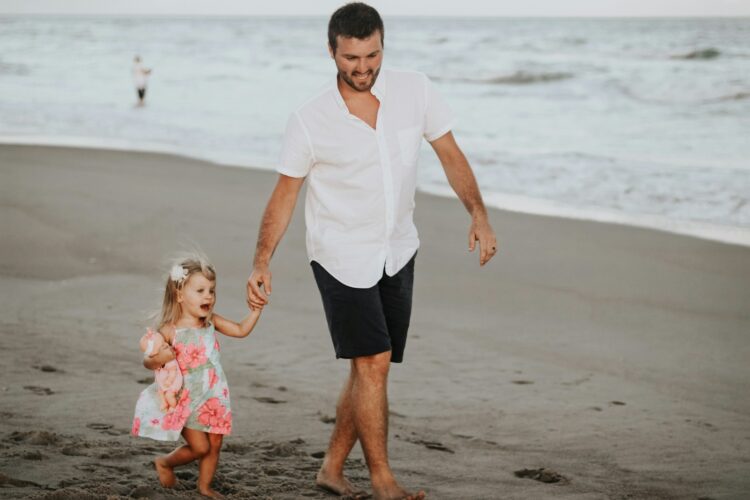
This is a deeply personal and potentially painful question. It implies judgment about the circumstances that led to his parenting situation. Whether he chose this path, stepped up unexpectedly, or is co-parenting with someone else, it is not your place to evaluate his decision. If he wants to share that story, he will. If he doesn’t, respect that silence. Being a single parent is not something that requires justification.
“Is their mom still involved?”

Unless he brings it up, this is not your business. It may be a source of tension, grief, or peace, but it is still personal. People often ask this question out of curiosity, not care. If you truly want to support him, focus on the relationship in front of you—the one he has with his child. That is the one that deserves attention and respect.
“It’s just not the same without a mother.”

This sentence may come from nostalgia or bias, but it undermines everything a single father is doing. Yes, parenting without a partner can be different. But different does not mean worse. Suggesting that fatherhood is inherently lacking without maternal presence devalues his role and effort. What matters most is consistency, love, and stability. And plenty of single dads offer all three every single day.
“Wow, your house is actually clean.”
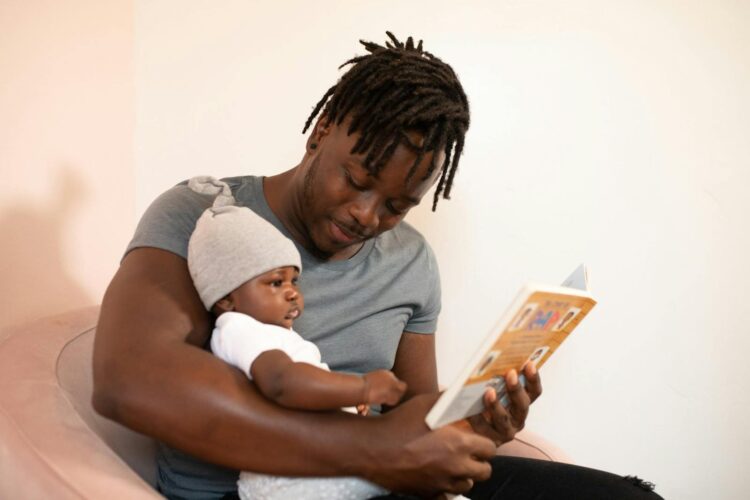
This comment may be intended as a joke, but it is loaded with assumption. It suggests that men are naturally messy, unorganized, or incapable of running a household well. Keeping a home in order takes effort, and many single fathers manage it while balancing work and parenting. Instead of acting surprised that his home is tidy, consider that it reflects his pride, structure, and care for his child’s environment.
“Do you even know what you’re doing?”

No parent has it all figured out, but this question hits differently when aimed at a single dad. It assumes he is lost or guessing his way through fatherhood, simply because he is doing it alone. In reality, he is learning every day, just like every other parent. He may doubt himself sometimes, but he also knows what his child needs. Support and encouragement go much farther than skepticism.
“You’re doing a better job than I expected.”

This is not a compliment. It reveals that your expectations for him were low to begin with. It suggests that his competence is a surprise, which can feel dismissive and demeaning. No one wants to be congratulated for being better than someone else’s stereotype. A real compliment would sound like trust, like respect, like saying, “I see how hard you work, and it shows.”
“It must be hard to discipline without a mom.”

This comment assumes that discipline requires a specific gender dynamic, and that fathers are incapable of providing structure or emotional boundaries. Many single dads enforce rules, offer consequences, and have honest conversations with their children while also being gentle, understanding, and supportive. Discipline is not about gender. It is about consistency, communication, and love.
“She probably left because it was too hard.”

This is a cruel assumption based on absolutely nothing you know for sure. It places blame on someone who is not present and opens up wounds that may be private and painful. You do not know the story, the sacrifices, or the emotional landscape of their history. Even if you think you’re being sympathetic, this comment pits one parent against the other and adds unnecessary tension. It’s not helpful, and it certainly is not kind.
“Do you cook or just do takeout every night?”

This question might seem harmless, but it often comes laced with sarcasm or disbelief. It assumes that single fathers rely on shortcuts or are incapable of providing proper meals. Many dads cook daily, plan meals, and even learn new recipes to give their kids healthy, comforting food. And yes, sometimes there is takeout, just like in any household.
“Are you planning to get remarried soon?”

Parenthood is not a waiting period before romance. This question shifts focus away from the present relationship between a father and his child and places it on the idea that something is missing. He may or may not want a new relationship, but that is not the defining measure of his life. Single dads can be whole, fulfilled, and focused on raising their children without a ticking clock for remarriage.
“Don’t worry, they’ll still turn out okay.”
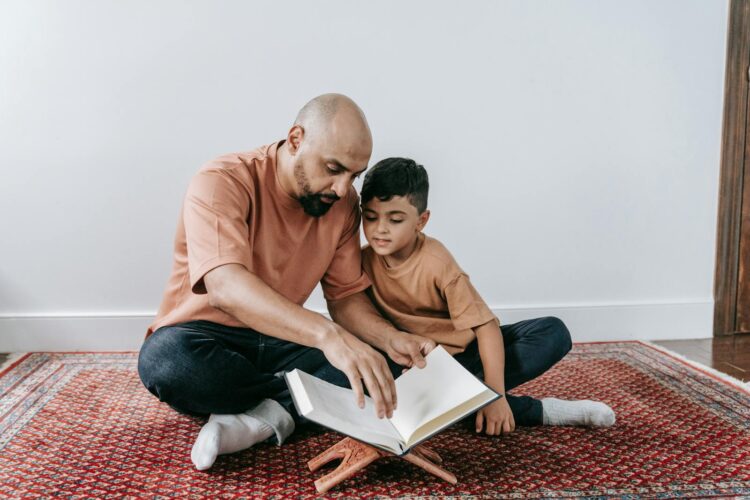
This statement implies that something is inherently wrong with their family structure and that the child is starting from a disadvantage. It sounds like reassurance, but it carries judgment. Plenty of children raised by single dads grow up to be emotionally strong, compassionate, and well-adjusted. Suggesting they might not “turn out okay” simply because they have one parent is not only wrong—it’s insulting to every loving father doing his best.
“You must be so lonely.”

This comment focuses on what you assume he lacks instead of what he has. Maybe he does feel lonely at times. Maybe he’s found a deep sense of purpose and joy in fatherhood. Either way, loneliness should not be projected onto someone based on marital status or household structure. Life as a single parent is full of rich moments, deep bonds, and meaningful connection—not just emptiness and solitude.
“At least you’re not dealing with custody drama.”

This is a dangerous assumption. Just because someone appears composed or focused on their kids does not mean the background is peaceful or simple. Custody issues are deeply personal and often painful. Even when a father does have full custody, it may be the result of trauma, conflict, or loss. Never make light of family court, visitation struggles, or complex co-parenting relationships.
“Well, you’ve got it easier than single moms.”

Comparing struggles between parents is never helpful. Every family faces different challenges—some emotional, some financial, some systemic. Single dads face judgment, lack of community support, and emotional pressure that is often invisible. Instead of turning parenting into a competition of hardships, recognize that every single parent, regardless of gender, deserves respect, empathy, and encouragement.
“A man can’t teach a girl how to be a woman.”

This outdated idea suggests that fathers are incapable of raising daughters with confidence, self-worth, or empathy. In reality, many girls raised by single dads thrive under their guidance and support. Fathers can model respect, strength, tenderness, and boundaries. While he may not have lived experience as a woman, he can absolutely raise a daughter to be strong, smart, and secure.
“Don’t worry, you’ll find someone to help.”
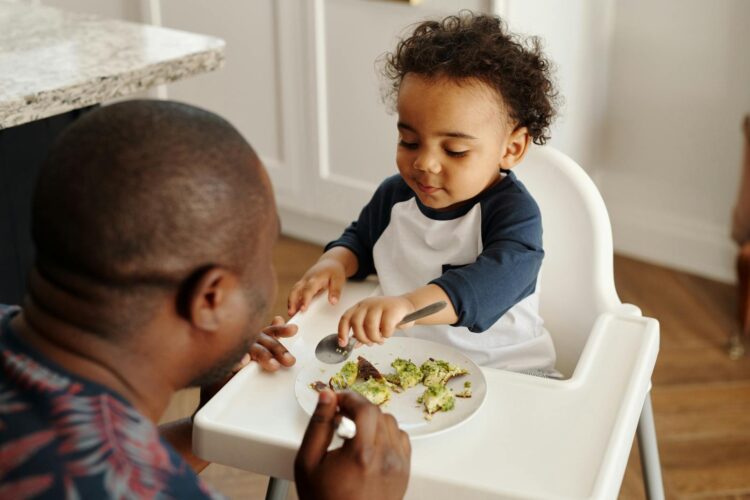
This comment assumes that he is barely holding it together and needs rescuing. While support can be wonderful, it should never be framed as something he lacks or is failing without. Many single dads are doing just fine. They are not raising their children alone as a stopgap measure until someone else steps in. They are doing it because they can—and they want to.

